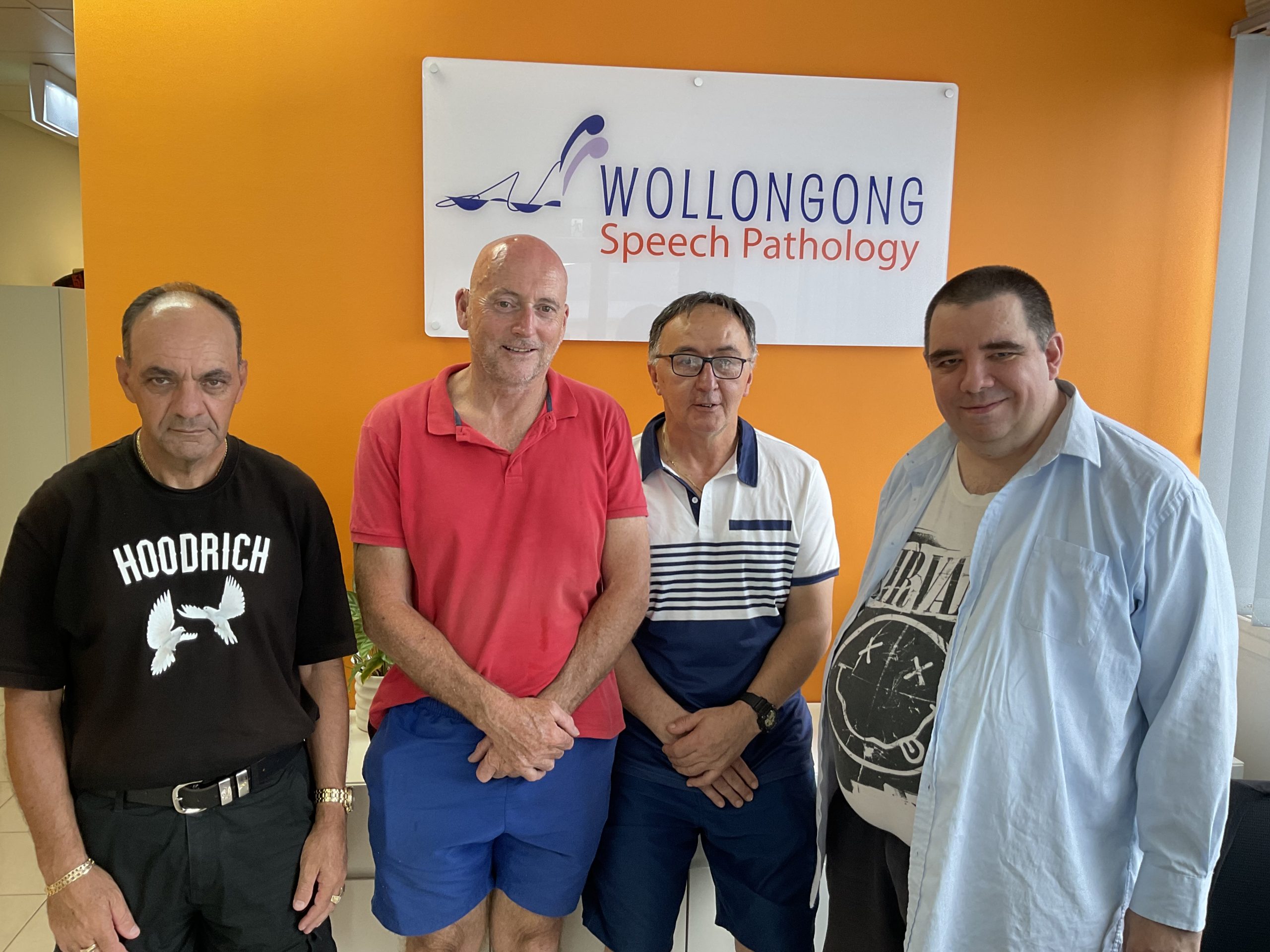As many as 50-90% of individuals with Parkinson’s disease will develop speech and voice disorders (see ‘dysarthria’ and ‘dysphonia’ below). It is common for a person with Parkinson’s to speak too softly and quickly, to the point where other people can’t understand. For this reason, speech pathology and Parkinson’s disease go hand in hand. Speech pathologists can help with communication. We can also help you to overcome any swallowing difficulties (see ‘dysphagia’ below).
About speech pathology and Parkinson’s disease
Speech pathology services should start soon after your diagnosis. A speech pathologist can help a person with Parkinson’s to improve:
- speaking volume,
- speech clarity,
- rate of talking,
- intonation,
- communication confidence,
- facial expression, and
- swallowing safety.
The best outcomes are achieved in early or middle stages of Parkinson’s. After therapy, improvements can be maintained for up to 2 years.
Speech pathology services should start as soon as possible after your diagnosis.
What is dysarthria, dysphonia, and dysphagia?
About LSVT Loud (R)
One treatment that Wollongong Speech Pathology offers is called LSVT LOUD (R). It is an intensive treatment: you attend 16 sessions over 4 weeks, as well as doing daily home practice. We will train you to use your voice at a more normal loudness level. You can find out more at www.lsvtglobal.com.
If you wanted to find out more about this program, you can read about Wollongong Speech Pathology’s rehabilitation services here, or contact us here.

Useful Tips
The following tips are courtesy of Parkinson’s Victoria.
Simple ways to help improve your voice are:
- Stay relaxed when you talk, so that you can put your efforts into speech
- Keep good posture when you talk
- Imagine that you are speaking in a big room and try to talk louder (without shouting)
- Speak slowly and try to make each word as clear as possible
- Keep sentences short and stress key words
- Try not to feel embarrassed about your speech, and continue to socialise with family and friends
- Try singing regularly as it is a great way to exercise your voice and breathing muscles
- Seek advice from a speech pathologist if you or your family still have concerns
Changes to handwriting can be frustrating, but there are some things you can do to make it easier:
- Use pens and pencils with a thicker grip, so that they are easier to hold
- Wear a weighted cuff around your wrist if you have a tremor
- Write on lined paper
- Write in capital letters
- Place your notepad on a non-stick mat so that is doesn’t slide around as you write
- Take your time – write for a short period, then rest before starting again
- Instead of writing things down, try using the voice recorder on your mobile phone.




